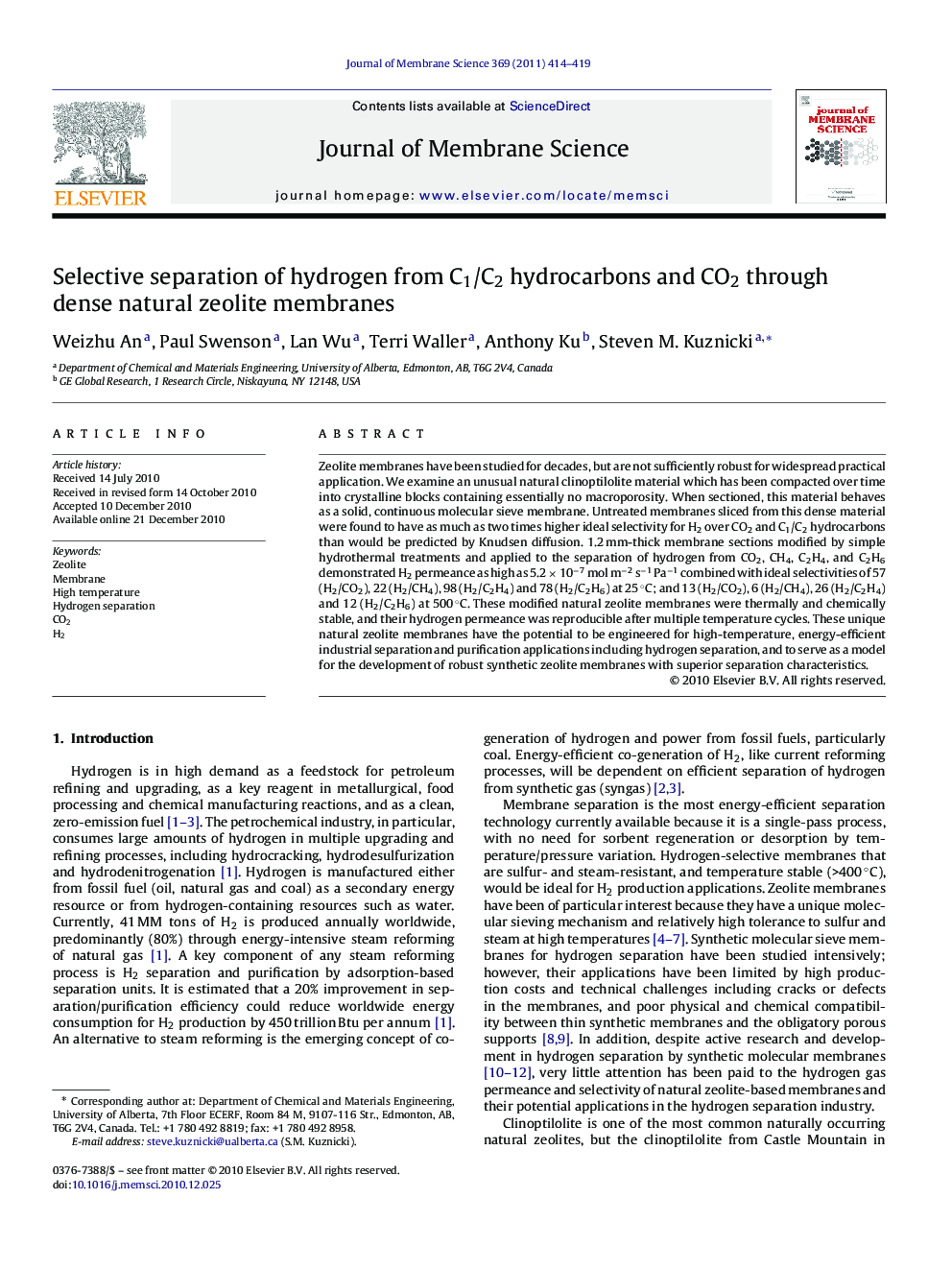| Article ID | Journal | Published Year | Pages | File Type |
|---|---|---|---|---|
| 635985 | Journal of Membrane Science | 2011 | 6 Pages |
Zeolite membranes have been studied for decades, but are not sufficiently robust for widespread practical application. We examine an unusual natural clinoptilolite material which has been compacted over time into crystalline blocks containing essentially no macroporosity. When sectioned, this material behaves as a solid, continuous molecular sieve membrane. Untreated membranes sliced from this dense material were found to have as much as two times higher ideal selectivity for H2 over CO2 and C1/C2 hydrocarbons than would be predicted by Knudsen diffusion. 1.2 mm-thick membrane sections modified by simple hydrothermal treatments and applied to the separation of hydrogen from CO2, CH4, C2H4, and C2H6 demonstrated H2 permeance as high as 5.2 × 10−7 mol m−2 s−1 Pa−1 combined with ideal selectivities of 57 (H2/CO2), 22 (H2/CH4), 98 (H2/C2H4) and 78 (H2/C2H6) at 25 °C; and 13 (H2/CO2), 6 (H2/CH4), 26 (H2/C2H4) and 12 (H2/C2H6) at 500 °C. These modified natural zeolite membranes were thermally and chemically stable, and their hydrogen permeance was reproducible after multiple temperature cycles. These unique natural zeolite membranes have the potential to be engineered for high-temperature, energy-efficient industrial separation and purification applications including hydrogen separation, and to serve as a model for the development of robust synthetic zeolite membranes with superior separation characteristics.
Research highlights▶ Natural zeolite membranes selectively separate hydrogen from C1/C2 hydrocarbons. ▶ Untreated membranes show higher selectivity for H2 than that predicted by Knudsen. ▶ Simple surface treatments significantly increase membrane H2 selectivity. ▶ Simple surface treatments significantly increase membrane thermal stability.
